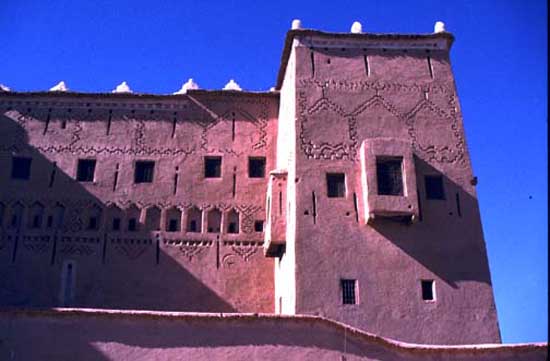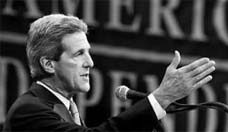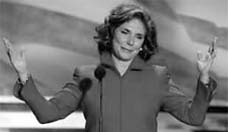
Morocco RPCV Jason Ben-Meir says to Indigenize Iraq's Reconstruction
Indigenize Iraq's Reconstruction
The brutal violence in Iraq requires not only accelerating the training of indigenous security forces, but giving the Iraqi people the responsibility for their own communities' reconstruction. That the United States has spent only $1 billion of the $18 billion available for reconstruction is due to: 1) a heavy reliance on foreign companies that cannot effectively operate because of security conditions, and 2) the lack of an overall strategy that enables the Iraqi people to design and implement reconstruction projects in their own communities throughout the country, which for now means focusing on regions outside the hostile "hot" zones. If the United States strongly supported the indigenous reconstruction of Iraq, whereby local communities implement projects that respond to their self-described needs, critical socio-economic benefits for tens of thousands of households may become apparent in a remarkably short time--just a few months.
Indigenous reconstruction has shown remarkable outcomes in communities around the world because local people have a strong incentive to maintain the projects they create (such as in education, health, business, agriculture, and environment). How does this work? In most cases, communities form local associations (core civil-society institutions) to manage projects and implement new ones. New tiers of cooperation then form as neighboring communities join together to create projects beneficial to their entire area. Indigenous reconstruction is a form of "bottom-up" development that is based on pluralist democratic procedures. Around the world, indigenous reconstruction has shown extremely positive socio-economic and political consequences.
For the process to work, independent facilitators are needed to catalyze dialogue within a community on its reconstruction priorities. The Iraqi interim government, with the support of the international community, especially the United States, should thus immediately begin training thousands of Iraqi school teachers, government and NGO personnel, and community members in facilitation methods. The techniques they learn help to achieve broad community participation in reconstruction efforts, possibly because of their similarities to conflict-management procedures. Based on dialogue and the use of a third-party, they help to ensure a process that is for once responsive to community needs, inclusive, and productive. The interactive development experience creates mutually beneficial relationships and trust among the participants, just as conflict-management procedures do.
A "Basic Training" course in facilitation can be completed in a two-week period. Newly trained facilitators can then return to their communities, organize meetings, and help set in motion an indigenous reconstruction process. Once communities determine their particular reconstruction priorities, which typically takes about six community meetings, each lasting two hours, outside funding to implement the locally designed projects is needed. After this is obtained, the next step is the creation of local employment for building schools, women's cooperatives, health clinics, irrigation canals, and so forth.
The interim Iraqi government should also create "community reconstruction planning and training centers." These locally managed centers assist communities in determining their priority goals and then in designing and implementing projects to achieve them. Centers also provide training in facilitation, modern agriculture, health, and other skills desired by the local population. In addition, centers can assist in reconciling conflicts that inevitably arise during local development processes. In sum, they provide one-stop shopping for community development needs and do so in ways that transfer needed skills to the local population.
Two fundamental elements of a pluralist democracy are the dispersion of power toward the interior (localities) and the inclusion of all social groups in decision making. Community reconstruction centers are pluralist democratic institutions because they strengthen the capacities of local people to manage their own development. Additionally, the partnerships that are created in the process among public, private, and NGO groups encourage greater accountability and transparency, which in turn help to prevent corruption. In these ways, centers provide the educational forum that catalyzes positive political change.
Community empowerment occurs through a gradual, non-violent and, as examples around the globe show, widely accepted process because of the many collective and individual benefits the community experiences. As people fulfill their own interests, they feel less alienation, and their zone of tolerance also expands because the underlying conditions that fuel extremism are being directly addressed. Those affected are then less likely to channel hatred toward outside actors. Additionally, as more and more Iraqis enjoy the benefits of the indigenous reconstruction approach, they will become increasingly emboldened to oppose extremism within their own country.
If communities are fully engaged in the design, implementation, and management of reconstruction projects that influence their daily lives, then aid as a tool of public diplomacy will be effective. For the United States to support this new direction in the reconstruction of Iraq requires that policy makers think very differently about how lasting development can be achieved and understand the absolutely vital role local communities must play in the process. The reconstruction of Iraq will be sustained by its own communities if they are put in control of its design and management. Indigenous capacities to manage development can reach their potential only when local people are in charge of rebuilding essential and major sectors of their own economic, social, and cultural life.




